Access
On Capitol Hill, in the courts, in the halls of the administration and in communities around the country, the AHA and its members have worked to preserve and expand access to high-quality, equitable care. In 2018, we:
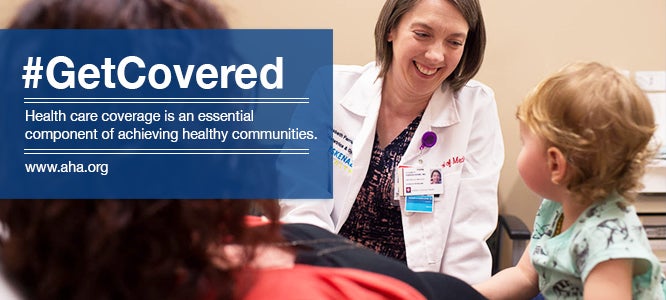 Fought to preserve access to coverage and consumer protections for pre-existing conditions and other essential health benefits, including securing a 10-year extension of the Children’s Health Insurance Program and pushing back on the introduction of new insurance models, such as short-term, limited-duration and association health plans that would provide less coverage, leaving consumers at risk. Our annual “Get Covered” campaign helps members spread the word about coverage options.
Fought to preserve access to coverage and consumer protections for pre-existing conditions and other essential health benefits, including securing a 10-year extension of the Children’s Health Insurance Program and pushing back on the introduction of new insurance models, such as short-term, limited-duration and association health plans that would provide less coverage, leaving consumers at risk. Our annual “Get Covered” campaign helps members spread the word about coverage options.
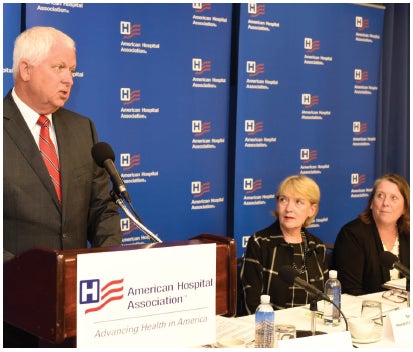 Secured five-year extensions of the critical Medicare-Dependent Hospital program and low-volume adjustment, more than $607 million and $2 billion, respectively, in needed funds for eligible hospitals, particularly in rural areas. Also secured a five-year extension of rural and urban ambulance add-on payments.
Secured five-year extensions of the critical Medicare-Dependent Hospital program and low-volume adjustment, more than $607 million and $2 billion, respectively, in needed funds for eligible hospitals, particularly in rural areas. Also secured a five-year extension of rural and urban ambulance add-on payments.
Continued the fight in court to protect the 340B Drug Savings Program from unwarranted cuts, while at the same time introducing Good Stewardship Principles to strengthen the program by increasing transparency and helping better communicate the immense value of the program for vulnerable patients and communities.
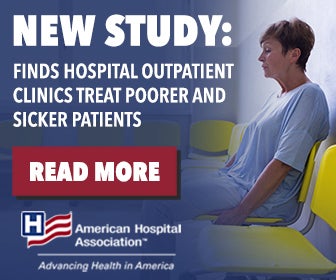 Helped secure passage of the SUPPORT for Patients and Communities Act, which will provide hospitals with needed tools and resources to better care for patients with substance use disorders and to prevent further addiction; it also partially repeals the longstanding Institutions for Mental Diseases exclusion.
Helped secure passage of the SUPPORT for Patients and Communities Act, which will provide hospitals with needed tools and resources to better care for patients with substance use disorders and to prevent further addiction; it also partially repeals the longstanding Institutions for Mental Diseases exclusion.
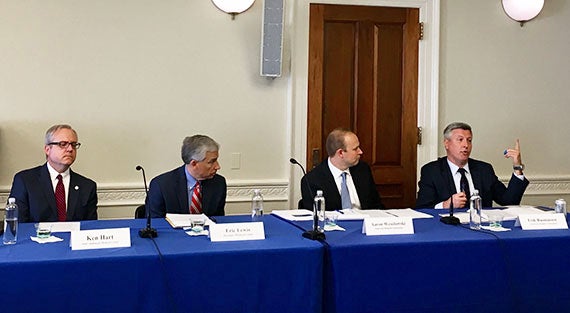 Fought to protect access to community-based care by opposing the expansion of site-neutral payment policies with a multi-pronged campaign involving advocacy with CMS, advertising and raising support on Capitol Hill. Forty-eight senators and 138 members of the House of Representatives weighed in with the agency urging it to reconsider the proposals.
Fought to protect access to community-based care by opposing the expansion of site-neutral payment policies with a multi-pronged campaign involving advocacy with CMS, advertising and raising support on Capitol Hill. Forty-eight senators and 138 members of the House of Representatives weighed in with the agency urging it to reconsider the proposals.
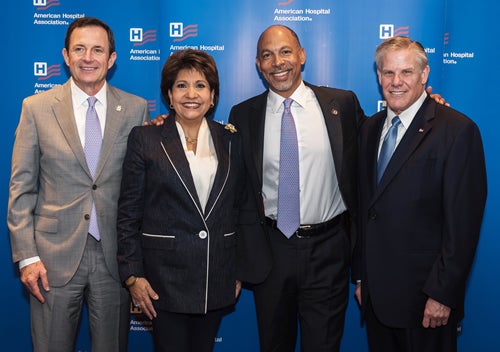
Deepened our commitment to health equity through strategic alliances with the National Urban League and UnidosUS and new programs like the Hospital Community Cooperative.
Building on the work of the AHA Task Force on Ensuring Access in Vulnerable Communities, secured the introduction of The Rural Emergency Medical Center Act of 2018 to create a new designation under the Medicare program allowing hospitals meeting certain criteria to transition to a 24/7 emergency medical center with enhanced reimbursement and transportation to higher acuity facilities, as needed.
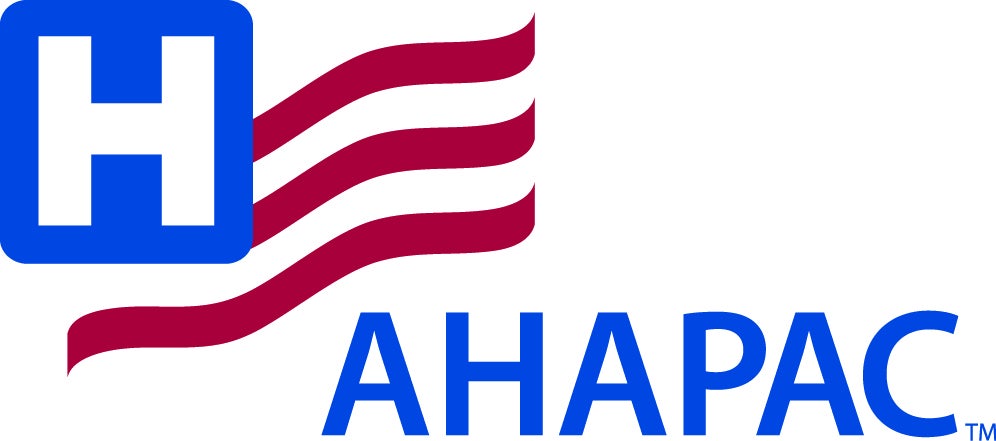 Just as hospitals are reimagining health care, AHAPAC is modernizing its efforts to reflect how our members want to have an impact on their community through political engagement.
Just as hospitals are reimagining health care, AHAPAC is modernizing its efforts to reflect how our members want to have an impact on their community through political engagement.
Together with our allied partners and members, we are supporting like-minded candidates who will advance key issues facing hospitals and health systems in the halls of Congress. In the 2018 election cycle, AHAPAC dispersed nearly $3.5 million.
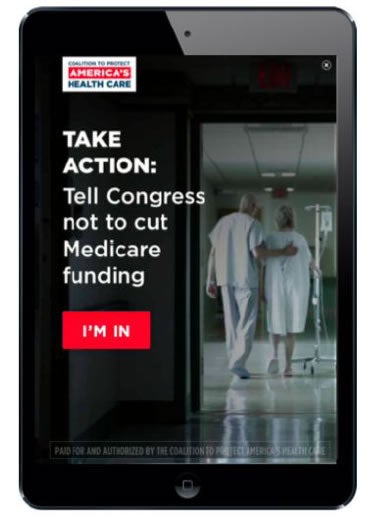 Through the Coalition to Protect America’s Health Care, of which the AHA is a founding member, continued to build engagement with and support for hospitals with robust digital campaigns; the Coalition has nearly 1.9 million supporters, who participate actively in advocacy campaigns to support hospitals and health systems. For more, visit www.protecthealthcare.org.
Through the Coalition to Protect America’s Health Care, of which the AHA is a founding member, continued to build engagement with and support for hospitals with robust digital campaigns; the Coalition has nearly 1.9 million supporters, who participate actively in advocacy campaigns to support hospitals and health systems. For more, visit www.protecthealthcare.org.

